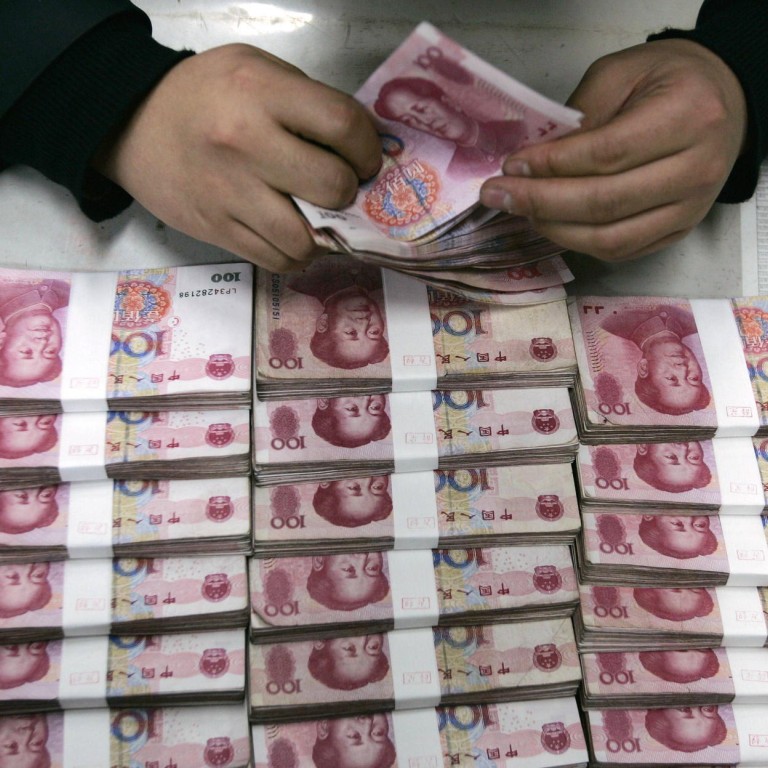
Bad-bank listings good news for investors
Financial institutions await multibillion-dollar IPOs of asset managers Cinda and Huarong
Some market participants are wondering if shares in Hong Kong-listed state-owned lenders will pick up now that growth in the world's second-biggest economy looks like stabilising.

Cinda and Huarong, two of the four vehicles that were formed to turn around the bad assets of the lenders, are preparing to launch their share offerings in the next six months in Hong Kong.
Given its ability to fend off economic headwinds, Cinda, which held a beauty parade in Beijing for potential investors at the weekend, is looking to raise between US$2 billion and US$3 billion in the fourth quarter, which could be Hong Kong's biggest initial public offering this year if the mega-sized Alibaba deal falls apart.
Huarong, which will be choosing its pre-listing and strategic investors in the fourth quarter, would start its share sale at some point next year.
Such an offering would overshadow the long-awaited listings of city and provincial-level lenders, which are suffering from unfavourable valuations and shrinking margins after the central bank signalled market-oriented reforms of the antiquated financial system.
The booming shadow banking sector on the mainland is vaguely defined and includes underground lending activity in which people lend directly to each other, partly reflecting the undeveloped nature of regular financing channels and a build-up of risk in the financial sector.
The logic behind the intuition of Western financial institutions is simple. An easing of growth in China will cause asset deterioration and create business opportunities for bad loan agencies to finance or manage a growing number of troubled companies.
In some cases this could include private equity having a role in helping turn around the struggling companies, which may include capital-intensive steel smelters, coal miners and railway operators, in return for lucrative annual returns of more than 30 per cent.
Deal-savvy bankers and private equity titans made handsome profits from the first wave of pre-listing investments in a number of mainland financial institutions. Cases include the investment by Goldman Sachs in Industrial and Commercial Bank of China, and Carlyle's purchase of China Pacific Insurance.
Now it looks like they are keen to replicate those deals and they have locked in new targets.
New mainland debt issued from 2009 to last year was about 110 per cent of gross domestic product, and total debt to GDP is now 205 per cent, according to investment bank CLSA.
This sends a clear signal to investors that credit-fuelled growth has reached an inflection point where rising debt does not sustain further growth.

